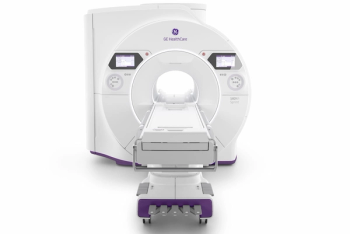
The combination of high-performance gradient technology and AI tools with the Signa Sprint MRI reportedly facilitate enhanced MRI workflow efficiencies in cardiac and oncology imaging.

The combination of high-performance gradient technology and AI tools with the Signa Sprint MRI reportedly facilitate enhanced MRI workflow efficiencies in cardiac and oncology imaging.

For DBT breast cancer screening, 47 percent of radiologist-only flagged false positives involved mass presentations whereas 40 percent of AI-only flagged false positive cases involved benign calcifications, according to research presented at the recent American Roentgen Ray Society (ARRS) conference.
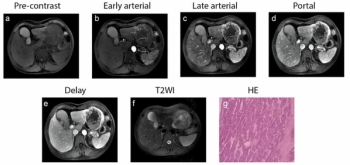
New research revealed that Hispanic Americans with evidence of hepatic steatosis on MRI but no formal diagnosis of MASLD had over a fourfold higher risk of developing hepatocellular carcinoma in comparison to those who had a formal diagnosis of MASLD.
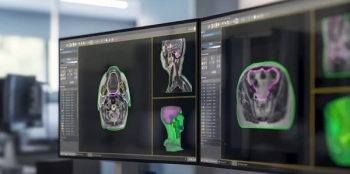
Capable of segmenting over 37 organs and structures in the head, neck and pelvis, the MR Contour DL software is currently being showcased at the European Society for Radiotherapy and Oncology (ESTRO) conference.
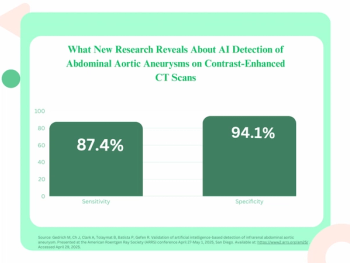
The AI software Viz AAA offered a sensitivity of 87.5 percent in detecting abdominal aortic aneurysms on contrast-enhanced CT, according to new retrospective research presented at the American Roentgen Ray Society (ARRS) conference.
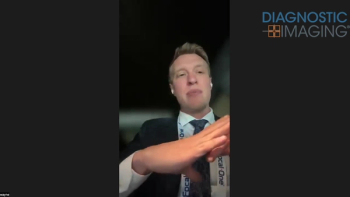
In a recent interview, Wayne Brisbane, M.D., discussed new research, presented at the American Urological Association (AUA) conference, which revealed a 15 percent higher AUC for an emerging AI software in detecting seminal vesicle invasion (SVI) in comparison to prostate MRI alone.
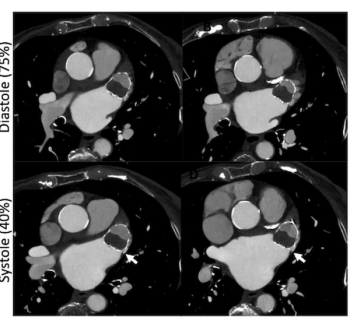
Cardiac CT angiography may provide insights on common post-op complications of left atrial appendage closure, ranging from peri-device leaks to device-related thrombus, according to research presented at the American Roentgen Ray Society (ARRS) conference.
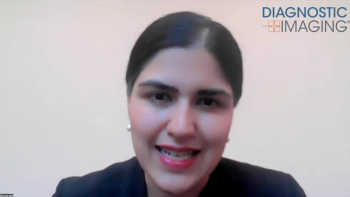
In a recent interview, Manisha Bahl, M.D., discussed key findings from a new study on AI and digital breast tomosynthesis that she presented at the Society for Breast Imaging (SBI) conference.
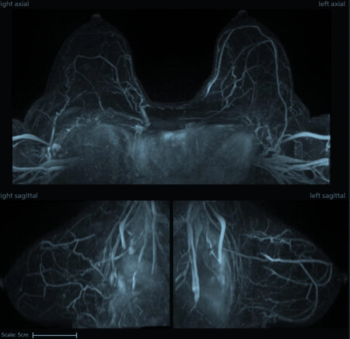
An artificial intelligence algorithm for dynamic contrast-enhanced breast MRI offered a 93.9 percent AUC for breast cancer detection, and a 92.3 percent sensitivity in BI-RADS 3 cases, according to new research presented at the Society for Breast Imaging (SBI) conference.
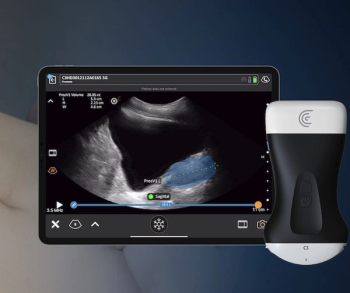
Offering expedited calculation of prostate volume, Clarius Prostate AI is reportedly the first AI-enabled prostate measurement tool to garner FDA clearance for use with handheld ultrasound.
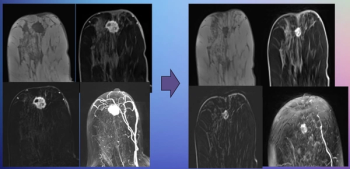
New research presented at the Society for Breast Imaging (SBI) conference suggests that abbreviated MRI is comparable to full MRI in assessing pathologic complete response to neoadjuvant chemotherapy for breast cancer.
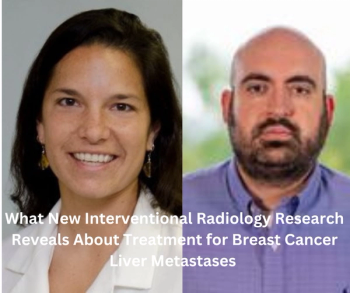
Emerging research from the recent Society of Interventional Radiology (SIR) conference suggests the combination of transarterial radioembolization (TARE) and immunotherapy may offer improved three-year survival outcomes for patients with breast cancer and liver metastases.
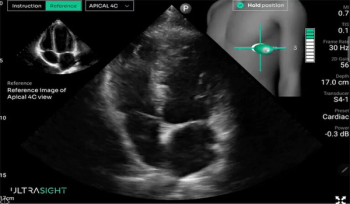
In a study recently presented at the American College of Cardiology (ACC) conference, researchers found that novice use of AI-guided cardiac ultrasound after an AI-enabled electrocardiogram increased the positive predictive value for reduced left ventricular ejection fraction (LVEF) or aortic valve stenosis by 33 percent.
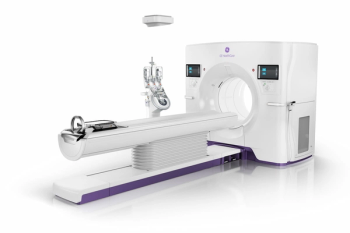
Featuring enhanced low-dose image quality with motion-free images, the Revolution Vibe CT system reportedly facilitates improved diagnostic clarity for patients with conditions ranging from in-stent restenosis to atrial fibrillation.
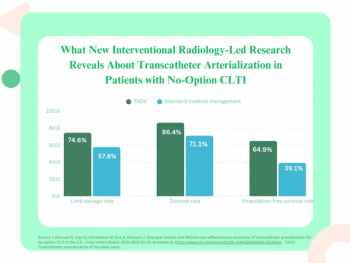
For patients with no-option chronic limb-threatening ischemia (CLTI), transcatheter arterialization provided over a 25 percent higher amputation-free survival rate over standard medical management at one year, according to research presented at the Society of Interventional Radiology (SIR) Annual Scientific Meeting.
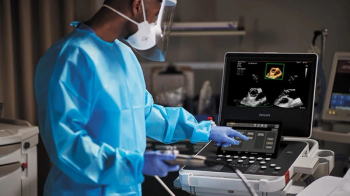
Artificial intelligence (AI)-powered measurement capabilities provide key features with the Compact Ultrasound 5500CV device, which was unveiled at the American College of Cardiology (ACC) conference.
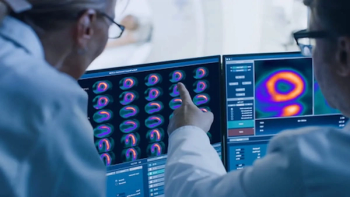
The positron emission tomography myocardial perfusion imaging (PET MPI) agent, which offers a significantly higher half-life than other cardiac PET agents, was recently granted pass-through payment status by CMS that will go into effect on April 1, 2025.
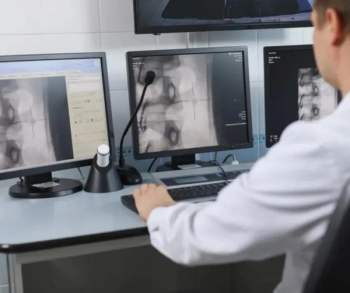
In addition to a variety of tools to promote radiology workflow efficiencies, the integration of the Gravity AI tools into the PowerServer RIS platform may reduce time-consuming prior authorizations to minutes for completion.
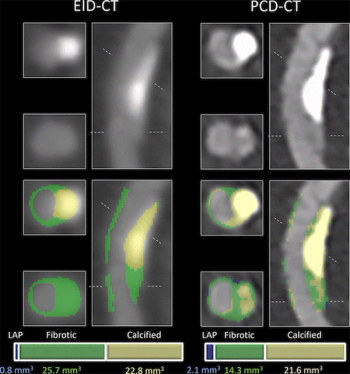
The use of ultra-high-resolution photon-counting CT in the evaluation of stable chest pain may significantly reduce follow-up tests and invasive coronary angiography (ICA) procedures, possibly resulting in millions in health-care cost savings, according to a cost-effectiveness analysis presented recently at the European Congress of Radiology.
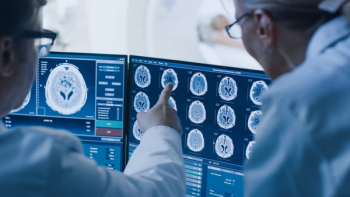
Offering four key software-as-a-service features, the cloud-based enterprise imaging suite reportedly offers enhanced security and storage and facilitates streamlined radiology workflows.
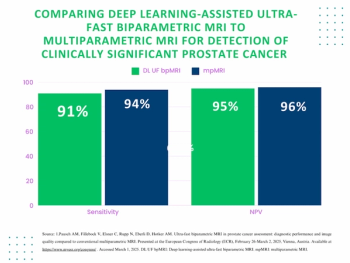
A deep learning-enhanced ultra-fast bpMRI protocol offered similar sensitivity for csPCa as mpMRI with an 80 percent reduction in scan time, according to research findings presented at the European Congress of Radiology (ECR) conference.
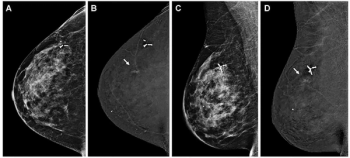
In addition to contrast-enhanced mammography (CEM) demonstrating over a 90 percent detection rate for multifocal masses, researchers found that no significant difference between histological measurements and CEM, according to study findings presented at the European Congress of Radiology.
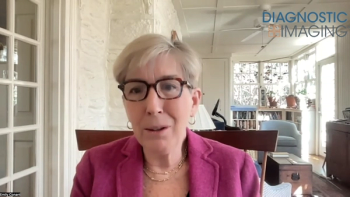
In a recent interview, Emily Conant, M.D., discussed findings from two studies presented at the European Congress of Radiology (ECR) conference that showed the potential impact of image-based AI risk models and breast arterial calcification detection in mammography screening.
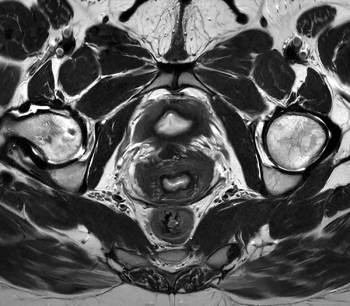
The updated software reportedly enables a threefold improvement in MRI scan time and enhanced image sharpness.
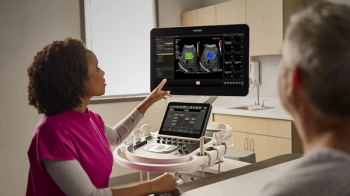
Offering an array of AI-powered automation and image optimization, the new Elevate software is geared to maximizing workflow efficiencies for the EPIQ Elite and Affiniti ultrasound systems.
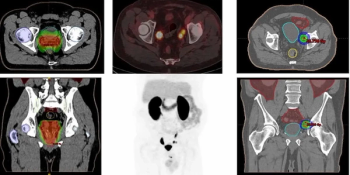
18F-DCFPyL facilitated detection of recurrent prostate cancer in 51 percent of patients with PSA levels ranging between 0.2 to 0.5 ng/ml, according to new research presented at the American Society of Clinical Oncology Genitourinary Cancers (ASCO-GU) Symposium.

In a video interview from the International Stroke Conference (ISC), Jeremy Heit, M.D., Ph.D., discussed new research revealing over 90 percent sensitivity and specificity rates for AI detection of subdural hematomas on non-contrast-enhanced head CTs.
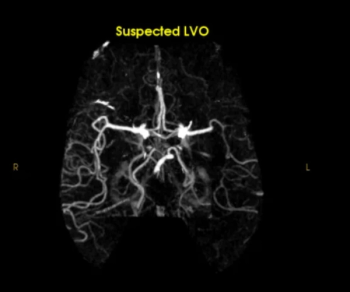
The Rapid LVO AI software detected 33 percent more cases of large vessel occlusion (LVO) on computed tomography angiography (CTA) than Viz LVO AI software, according to a new comparative study presented at the International Stroke Conference (ISC).
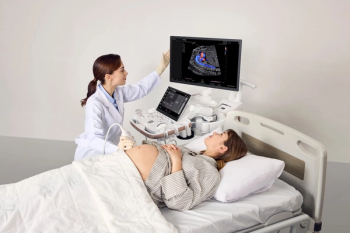
Designed for advanced OB-GYN applications, the Samsung Z20 ultrasound platform reportedly provides a combination of artificial intelligence (AI) tools and enhanced ergonomics.
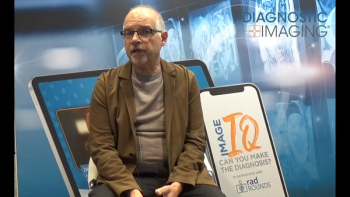
In the third part of a three-part interview from the recent RSNA conference, Mark Traill, M.D., discusses the potential of image-based risk assessment artificial intelligence (AI) algorithms in bolstering adherence to screening protocols for women at high risk for breast cancer.